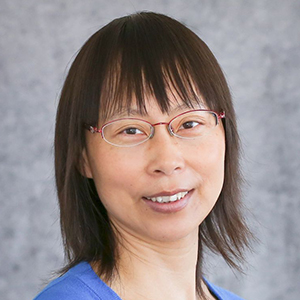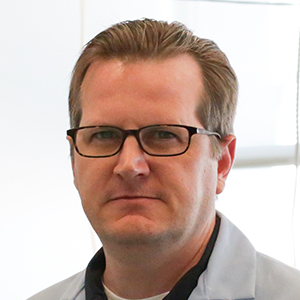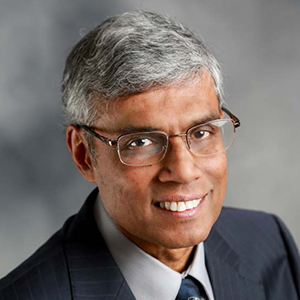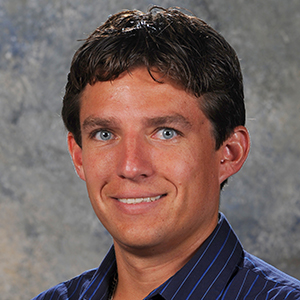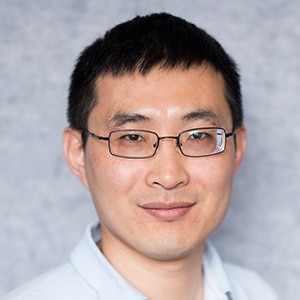CHRISTOPHER BELLONA
ASSociate PROFESSOR, CIVIL AND ENVIRONMENTAL ENGINEERING
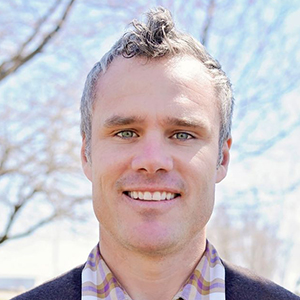
EDUCATION
- PhD Environmental Science and Engineering, Colorado School of Mines, 2007
- MS Environmental Science and Engineering, Colorado School of Mines, 2003
- BS Environmental Science, Western Washington University, 2000
CONTACT
Coolbaugh Hall
303-273-3061
cbellona@mines.edu
RESEARCH INTERESTS
Professor Bellona focuses on contaminant removal through physical, chemical and biological treatment processes. A portion of his research has focused on standard potable water reuse treatment trains using technologies including microfiltration, reverse osmosis and advanced oxidation (UV/H2O2) . He has extensive experience evaluating alternative treatment processes including nanofiltration in lieu of reverse osmosis and a novel treatment train of ozone followed by biologically active filtration with granular activated carbon (GAC). His research team has also developed an enhanced ozone process for the removal of ozone refractory compounds. He has also focused on the extraction of materials from waste streams including reverse osmosis concentrate. Other current research projects include the removal of per- and polyfluorinated alkyl substances (PFASs) from water resources. His research group is currently working on projects using nanofiltration/reverse osmosis, GAC, ion-exchange resin, sub-micron powdered activated carbon with ceramic microfiltration, and destructive technologies (UV processes, non-thermal plasma, electrochemical systems) for the removal of PFAS.
TZAHI Y. CATH
BEN L. FRYREAR PROFESSOR, CIVIL AND ENVIRONMENTAL ENGINEERING
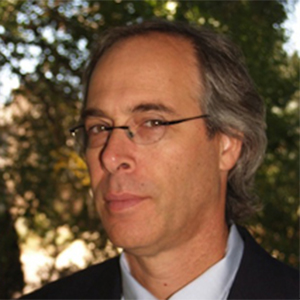
EDUCATION
- PhD Civil and Environmental Engineering, The University of Nevada, Reno, 2003
- MS Civil and Environmental Engineering, The University of Nevada, Reno, 2001
- BS. Mechanical Engineering, Tel Aviv University, 1992
CONTACT
303-273-3402
Fax: 303-273-3413
tcath@mines.edu
Personal Web Page
RESEARCH INTERESTS
My students and I conduct research in the area of water and wastewater treatment, and specifically we focus on the use of commercial and novel membrane processes. In the area of wastewater treatment and reuse we investigate the performance and enhancement of on-site wastewater treatment using novel hybrid membrane bioreactors and sequencing batch reactors. In this study we focus on the simultaneous optimization of energy consumption, chemical use, and nutrient and organic removal. We also explore the use of byproducts such as biosolids for bio-energy production. We also investigate novel membrane processes such as osmotically driven membrane processes (forward osmosis and pressure-retarded osmosis) for multi-barrier treatment of domestic and industrial wastewater for ultimate direct potable reuse. Specifically, our research focuses on investigation of solute and solvent mass transport in forward osmosis and the effects of these phenomena on future industrial implementation of the technology.
LINDA ANN FIGUEROA
PROFESSOR, CIVIL AND ENVIRONMENTAL ENGINEERING
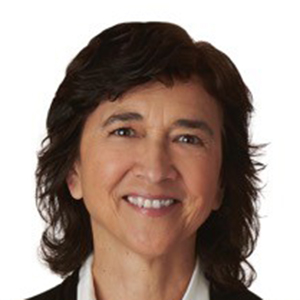
EDUCATION
- PhD, Civil Engineering, University of Colorado, Boulder, CO, 1989
- MS, Civil Engineering, University of Colorado, Boulder, CO, 1985
- BS, Civil Engineering, University of Southern California, Los Angeles, CA, 1978
- Professional Civil Engineer, California State # C32997
CONTACT
Coolbaugh Hall
303-273-3491
lfiguero@mines.edu
RESEARCH INTERESTS
Environmental engineers play an important role in society in addressing issues of sustainable development and complex/interdisciplinary problems. Environmental engineers needs to have the knowledge and experience required to facilitate engineering solutions to the environmental interplay between food, energy, water within a sustainable community context.
I have a broad range of experiences that I bring to addressing environmental issues that include design and analysis of water and wastewater treatment systems, application of molecular microbiology tools to nitrogen transformations and the biogeochemistry of metal and radionuclide immobilization.
My research is driven by microbial solutions to environmental issues with the recognition of the need to minimize energy requirements and thus the carbon footprint of the solution. My approach is to partner with industry and government agencies to ensure that we are producing solutions that will be accepted and implemented. My passion is in the linkage of fundamental microbial processes with geochemistry and modeling to create solutions of the future.
QI HAN
PROFESSOR, COMPUTER SCIENCE
EDUCATION
- Ph.D. Computer Science University of California-Irvine 2005
CONTACT
Brown Hall 280H
303-273-3849
qhan@mines.edu
Personal Web Page
RESEARCH
Dr. Qi Han directs the Pervasive Computing Systems (PeCS) research group in the Department of Computer Science. She conducts research and development in various areas within the realm of networking and distributed systems. The mission of PeCS is to design algorithms, develop techniques, and build systems to enable pervasive and mobile computing applications. PeCS members interests range from algorithms to systems, from design and experimentation to deployment and applications. Research topics with PeCS cover cyber physical systems, Internet of Things, noble computing, and swarm robotic systems. She also applies her expertise into various applications such as environmental monitoring, energy efficient buildings, oil refinery inspection, and underground mine safety.
CHRISTOPHER P. HIGGINS
PROFESSOR, CIVIL AND ENVIRONMENTAL ENGINEERING
EDUCATION
- PhD, Civil and Environmental Engineering, Stanford University, Stanford, CA, 2007
- MS, Civil and Environmental Engineering, Stanford University, Stanford, CA, 2002
- BA, Chemistry and Chemical Biology, Harvard University, Cambridge, MA, 1998
CONTACT
Coolbaugh Hall
303-384-2002
chiggins@mines.edu
RESEARCH INTERESTS
Dr. Higgins’ research focuses on the fate, transport, and bioaccumulation of emerging contaminants in aquatic and terrestrial systems. Current research projects are examining:
- the potential for bioaccumulation of organic contaminants (including pharmaceuticals, personal care products, and perfluorochemicals) into foodcrops from reclaimed water;
- the bioaccumulation of organic contaminants from biosolids-amended soils;
- the fate of perfluorochemicals in groundwater systems, particularly in the presence of co-contaminants;
- the development of analytical methods for the detection and quantification of inorganic nanoparticles in environmental and biological media; and
- the fate of organic contaminants in wastewater treatment plants.
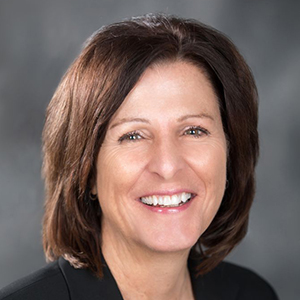
TERRI S. HOGUE
PROFESSOR CIVIL AND ENVIRONMENTAL ENGINEERING
interim Dean, earth resources and environmental programs
EDUCATION
- PhD Hydrology and Water Resources, University of Arizona, Tucson, AZ. 2003
- MS Hydrology and Water Resources, University of Arizona Tucson, AZ. 1998
- BS Geology, University of Wisconsin-Eau Claire, WI. 1995
CONTACT
303-384-2588
thogue@mines.edu
RESEARCH INTERESTS
TISSA H. ILLANGASEKARE
AMAX DISTINGUISHED CHAIR OF ENVIRONMENTAL SCIENCES
PROFESSOR, CIVIL AND ENVIRONMENTAL ENGINEERING
DIRECTOR, CENTER FOR THE EXPERIMENTAL STUDY OF SUBSURFACE ENVIRONMENTAL PROCESSES
EDUCATION
- PhD in Civil Engineering, Colorado State University, 1978 Colorado State University, Fort Collins, Colorado
- MEng in Hydrology and Water Resources Engineering, 1974 Asian Institute of Technology, Bangkok, Thailand
- BSc (honors) in Civil Engineering, 1971 University of Ceylon, Peradeniya, Sri Lanka
- Honorary Doctorate in Science and Technology, Uppsala University, Sweden, 2010
CONTACT
Coolbaugh Hall 310
303-384-2126
tillanga@mines.edu
RESEARCH INTERESTS
lllangasekare’s primary area of research is in modeling of flow and transport in permeable and fractured media. His research encompasses many areas that include numerical modeling of saturated and unsaturated flow in soils, surface-subsurface interaction, arid-zone hydrology, integrated hydrologic modeling, flow in subfreezing snow, transport of dissolved and multiphase wastes, wireless sensor networking for environmental monitoring and intelligent remediation and environmental impacts of energy development. His research combines basic theories describing fundamental processes, numerical models and experiments that are conducted at a hierarchy of scales from small laboratory cells to intermediate scale test systems that includes a coupled porous media/ low velocity boundary layer environmental wind tunnel. Recently, he has extended his research interests to Geohealth.
CURRENT EDITORSHIPS
Editor, AGU Advances
Editor, AGU Perspectives in Earth and Planetary
Sciences
Speciality Chief Editor of Water and Human
Health of Frontiers in Water
Paul C. Johnson
Professor and President
Colorado School of Mines
EDUCATION
- 1988 Ph.D.- Princeton University- Chemical Engineering
- 1984 M.A. – Princeton University – Chemical Engineering
- 1983 B.S. – University of California, Davis – Chemical Engineering
CONTACT
pcjohnson@mines.edu
RESEARCH INTERESTS
Johnson’s expertise is in soil and groundwater remediation and risk assessment. His work forms the basis for many widely applied technologies and regulatory guidance on risk assessment.
KRISTOPH-DIETRICH KINZLI
TEACHING PROFESSOR, CIVIL AND ENVIRONMENTAL ENGINEERING
EDUCATION
- PhD, Water Resources Engineering, Colorado State University
Dissertation: Decision Support Systems for Efficient Irrigated Agriculture - MS, Fish, Wildlife and Conservation Biology, Colorado State University
Thesis: Using Bendway Weirs to Aid in the Recovery of the Endangered Rio Grande Silvery Minnow Hybognathus amarus - MS, Civil Engineering, Colorado State University
Thesis: Effects of Bendway Weir Characteristics on Resulting Eddy and Channel Flow Conditions - BS, Civil Engineering, Colorado State University, Universitaet Dortmund, Dortmund, Nordrhein-Westphalen Germany
CONTACT
Chauvenet Hall 122
303-273-3613
kkinzli@mines.edu
TEACHING INTERESTS
My interest in pursuing an academic career stems from my experiences as an undergraduate engineering student. During that time I was inspired by several influential and exemplar educators to dedicate my life to teaching engineering. During graduate school, I was given the opportunity to begin teaching and found pleasure, reward, and personal fulfillment in helping students learn and understand a subject. Since my ultimate goal was to secure a faculty teaching position, I took every opportunity to teach during graduate school and was fortunate enough to instruct four undergraduate engineering classes with eight total sections during a period of three years. Upon completing my doctorate in 2010, I joined the faculty at Florida Gulf Coast University and taught there for a total of 13 semesters. I joined Colorado School of Mines as a Teaching Professor in December of 2016.
Over the last 10 years, I have continually strived to improve my teaching ability, in order to prepare students to enter the work force as professional and well developed engineers who are aware of the societal and environmental impacts associated with the engineering profession. I plan to actively continue my development as an educator at Colorado School of Mines.
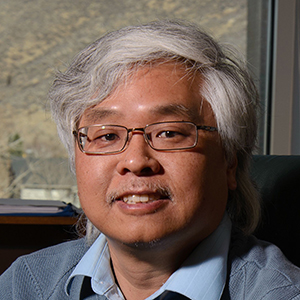
NING LU
PROFESSOR, CIVIL AND ENVIRONMENTAL ENGINEERING
EDUCATION
- PhD, Civil Engineering, The Johns Hopkins University
- MS, Civil Engineering, The Johns Hopkins University
- BS, Geotechnical Engineering, Wuhan University of Technology, China
OTHER AFFILIATIONS
- Fellow, American Society of Civil Engineers
- Lifetime Member, American Geophysical Union
- Associate Editor, Vadose Zone Hydrology, Soil Science Society of America
- Associate Editor, Geotechnical Testing Journal, American Society for Testing Materials
- Editorial Board Member, Georisk
- Editorial Board Member, International Journal of Geomechanics and Engineering
CONTACT
Coolbaugh Hall 336
303-273-3654
ninglu@mines.edu
RESEARCH INTERESTS
Ning Lu is well known internationally for his work on stresses in variably saturated porous media. His primary research interest is to seek common threads among basic soil physical phenomena including fluid flow, chemical transport, heat transfer, stress, and deformation. He pursues understanding of these phenomena at fundamental levels, including unifying atomic-scale potentials, inter-particle forces, and engineering-scale stresses in soils. He has been working on challenging engineering problems in chemical transport in clayey soil, underground nuclear waste isolation, residential house foundation damage by expansive clays, and, most recently, precipitation-induced shallow landslides. He teaches regularly on mechanics and hydrology of variably saturated porous media with the textbook Unsaturated Soil Mechanics (John Wiley and Sons, 2004) .He also teaches vadose zone hydrology and landslides with the textbook Hillslope Hydrology and Stability (N. Lu and J.W. Godt, Cambridge University Press, 2012).
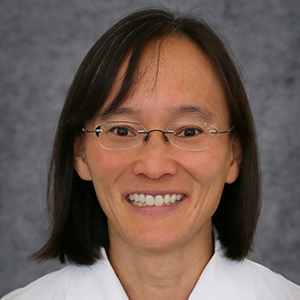
JUNKO MUNAKATA MARR
PROFESSOR and interim head of CIVIL AND ENVIRONMENTAL ENGINEERING
EDUCATION
- PhD, Civil Engineering, Stanford University
- MS, Civil Engineering, Stanford University
- BS (with honor), Chemical Engineering, Caltech (California Institute of Technology)
CONTACT
Coolbaugh Hall 254
303-273-3421
junko@mines.edu
RESEARCH INTERESTS
The unifying theme for my research interests is microorganisms. Natural systems contain a plethora of bacteria and other microbes that have useful and sometimes surprising metabolic capabilities. For example, microorganisms can transform a multitude of organic compounds. By harnessing such metabolic activity, we can engineer systems to remove organic pollutants microbially. For example, stimulation of indigenous microorganisms can lead to biodegradation of such groundwater contaminants as petroleum hydrocarbons, aromatic compounds, and chlorinated solvents. In addition, microorganisms can produce useful metabolic products. Microbes may, for instance, generate methane from coal under specific conditions.
Microbial communities are inherently dynamic. Understanding and ultimately controlling these dynamics is important in many applications of environmental engineering microbiology. For example, in situ remediation may require years for sufficient biodegradation to occur; any change in microbial activity or populations during such extended contaminant exposure may have significant implications for the treatment effectiveness. By understanding the community dynamics during the treatment process, we may be better able to control the biodegradation achieved. We can apply molecular biology techniques to assess microbial communities in environmentally relevant systems ranging from groundwater bioremediation, centralized and on-site wastewater treatment systems, and to identify sources of microbial contamination.Current research activities include evaluation of the compatibility of reductive dechlorination activity with polymers used for flow control, microbial communities associated with methane generation from coal, and the coordinated use of molecular biology and chemical analyses for microbial source tracking. I am also involved in educational research projects to develop new curricula related to humanitarian engineering and to broaden participation in engineering disciplines.
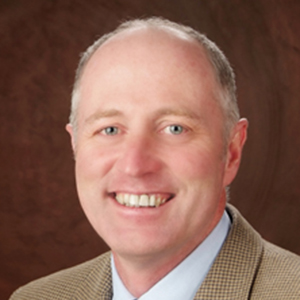
JOHN MCCRAY
PROFESSOR, CIVIL AND ENVIRONMENTAL ENGINEERING
EDUCATION
- PhD Hydrology and Water Resources, The University of Arizona, 1998.
- MS Environmental Systems Engineering, Clemson University, 1994.
- BS Electrical Engineering, West Virginia University, 1986.
CONTACT
Coolbaugh Hall 206
303-273-3490
jmccray@mines.edu
RESEARCH INTERESTS
Professor McCray conducts laboratory, field and modeling research related to water quality engineering and chemical transport in hydrologic systems, as well as understanding and overcoming policy barriers to implementing new water quality enhancement technology. Recent research projects include engineering the hyporheic zone to improve urban stream water quality, working to overcome legal and policy barriers to stormwater capture and beneficial use in arid western cities, life-cycle sustainability of innovative green infrastructure, transport of trace organics and pollutants from energy development in the vadose zone and aquifer systems, nutrient transport in watersheds, impacts of geologic carbon sequestration on overlying aquifers, and impacts of fire and other natural disasters on water quality in mountain watersheds. Professor McCray is a recent member of the U.S. EPA Science Advisory Board, and a Fellow of the Geological Society of America and ASCE EWRI.
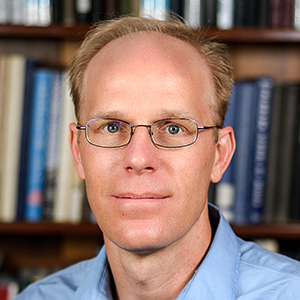
JONATHAN O. (JOSH) SHARP
ASSOCIATE PROFESSOR, CIVIL AND ENVIRONMENTAL ENGINEERING
EDUCATION
- Postdoc – Ecole Polytechnique Fédéral Lausanne (EPFL), Switzerland, 2006-08
- PhD in Civil and Environmental Engineering, UC Berkeley, 2006
- MS in Civil and Environmental Engineering, UC Berkeley, 2001
- BA in Geosciences, Princeton University, 1997
CONTACT
303-273-3473
jsharp@mines.edu
RESEARCH INTERESTS
With a foundation in environmental engineering microbiology, we gravitate toward interdisciplinary questions that integrate facets of microbiology, engineering, geochemistry and hydrology to enhance our understanding of the natural and built environment. Details about group members and collaborations are provided in the link above. Our research focuses on the ramifications of biological processes as they relate to water quality and reuse in a variety of projects that include:
• The role of microbial processes on the fate and transport of emerging water pollutants
• Attenuation of trace organics and nutrients in managed natural systems such as engineered wetlands, riverbank filtration, and aquifer recharge
• Microbially-mediated redox transformations of metals in the subsurface and engineered bioreactors
• Implications of insect-mediated tree mortality on terrestrial biogeochemistry and water resources
KAMINI SINGHA
PROFESSOR, GEOLOGY AND GEOLOGICAL ENGINEERING
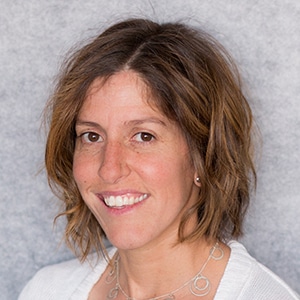
EDUCATION
- Ph.D. in Hydrogeology, Department of Geological and Environmental Sciences, Stanford University, 2005
- B.Sc. with Honors in Geophysics, Department of Geology and Geophysics, University of Connecticut, 1999
CONTACT
ksingha@mines.edu
http://inside.mines.edu/~ksingha/
Berthoud Hall 311E
303-273-3822
Fax: 303-273-3859
RESEARCH INTERESTS
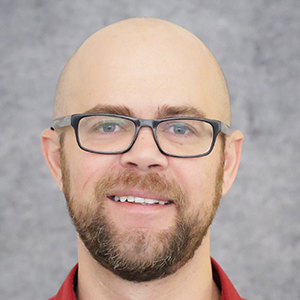
TIMOTHY J. STRATHMANN
PROFESSOR, CIVIL AND ENVIRONMENTAL ENGINEERING
EDUCATION
- PhD, Environmental Engineering, The Johns Hopkins University, 2001
- MS, Civil Engineering, Purdue University, 1996
- BS, Civil Engineering, Purdue University, 1995
OTHER AFFILIATIONS
- Associate Editor, Environmental Science & Technology
- U.S. EPA Science Advisory Board Environmental Engineering Committee
- Collaborative Research Appointment, National Renewable Energy Laboratory (NREL), Golden, CO
CONTACT
303-384-2226
strthmnn@mines.edu
Twitter: @timmstrathmann
RESEARCH INTERESTS
Professor Strathmann’s research group applies modern chemical research tools and techniques to develop more sustainable
technologies for environmental and energy applications. The group is currently developing technologies that employ innovative catalytic, hydrothermal, and photochemical processes to purify water, produce bio-renewable energy and chemicals, and recover valuable resources from waste streams. Current research projects include:
• Developing innovative photochemical technologies to remediate groundwater contaminated by persistent and toxic fluorochemicals (e.g., PFOS, PFOA)
• Valorizing waste streams through integrated biochemical-hydrothermal-catalytic conversion processes that produce liquid fuels, valuable industrial chemicals, and fertilizer
• Advancing heterogeneous catalytic technologies for reduction of toxic oxyanion groundwater contaminants (e.g., nitrate and perchlorate)
• Developing models that can be integrated into biorefinery systems optimization platforms to reduce production costs and life cycle environmental impacts of algae biofuels
• Identifying the dominant mechanisms controlling the transformation of organic micropollutants of emerging concern (e.g., pharmaceuticals, flame retardants) in reclaimed wastewater systems
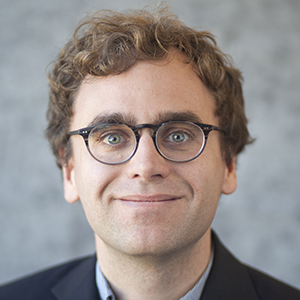
NILS TILTON
ASSISTANT PROFESSOR, MECHANICAL ENGINEERING
EDUCATION
He received his Ph.D. in 2009 from McGill University, after which he was a postdoctoral research fellow at the University of Aix-Marseille (2009-2011) and the University of Maryland (2011-2014).
CONTACT
Brown Hall W410E
303.384.2523
ntilton@mines.edu
RESEARCH INTERESTS
Dr. Tilton’s expertise is in theoretical and computational fluid mechanics with an emphasis on hydrodynamic stability and flow through porous media. He received his Ph.D. in 2009 from McGill University, after which he was a postdoctoral research fellow at the University of Aix-Marseille (2009-2011) and the University of Maryland (2011-2014). His research focuses on developing accurate analytical and numerical models of membrane filtration, carbon dioxide sequestration, and flow control for drag reduction. These applications play central roles in the water-energy-climate nexus, as well as the food, pharmaceutical, and petroleum sectors. Dr. Tilton’s numerical work focuses on spectral methods, fractional step methods, and multi-domain methods. His analytical work focuses on perturbation methods and volume-averaged models of flow through porous media.
XIAOLONG YIN
ASSOCIATE PROFESSOR, PETROLEUM ENGINEERING
EDUCATION
- PhD, Chemical Engineering, Cornell University, 2006
- MS, Mechanical Engineering, Lehigh University, 2001
- BS, Theoretical & Applied Mechanics, Beijing University, 1999
CONTACT
Room 207 Marquez Hall
303-384-2449
Fax: 303-273-3189
xyin@mines.edu
RESEARCH INTERESTS
Xiaolong Yin’s research focus on fluid dynamics of multiphase systems and phase equilibrium. His recent computational projects include direct numerical simulation of gas-solid fluidization, particle transport in narrow gaps (proppant transport), single- and multiphase flow in porous media, using lattice Boltzmann method to simulate phase behavior, and using neural network to accelerate permeability prediction. His recent experimental projects include hydrocarbon filtration in tight shale, visualization of flow and transport in microfluidics and nanofluidics, and measurement of gas condensation in tight shale.
WENDY ZHOU
ASSOCIATE PROFESSOR, GEOLOGY AND GEOLOGICAL ENGINEERING
EDUCATION
- Ph.D., Geological Engineering, Missouri University of Science and Technology
- M.S., Computer Science, Missouri University of Science and Technology
- M.S., Geological Engineering, University of Alaska Fairbanks
- B.S., Engineering Geology, China University of Geology, Wuhan, China
CONTACT
Berthoud Hall 305D
303-384-2181
wzhou@mines.edu
https://inside.mines.edu/~wzhou/
RESEARCH INTERESTS
- GIS applications in natural resource management, environmental impact study, and geohazard zonation
- SAR and PSInSAR applications in ground movement monitoring, such as ground subsidence, and landslide deformation rate
- Rock mass characterization
- Numerical modeling, such as finite element and finite difference methods, for ground thermal regime and tress-strain distribution in the rock or soil mass
